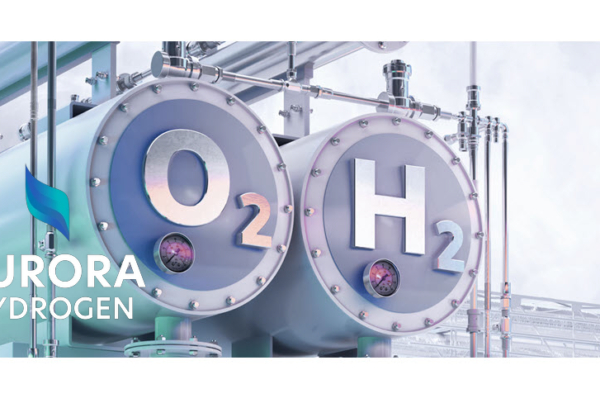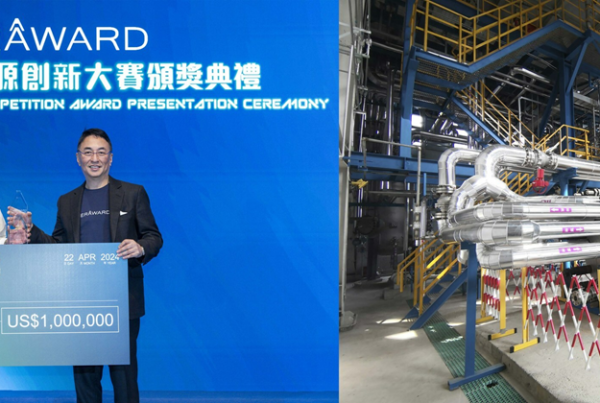
Hydrogen can provide reliable clean energy alternative for heavy-duty vehicles, which contribute to transportation emissions
WASHINGTON – Today, U.S. Senators Chris Coons (D-Del.) and John Cornyn (R-Texas) introduced the Hydrogen for Trucks Act, a bipartisan bill to support the adoption of heavy-duty hydrogen fuel cell vehicles and hydrogen fueling stations. The legislation will soon be introduced by U.S. Representatives Katie Porter (D-Calif.) and Gus Bilirakis (R-Fla.) in the U.S. House of Representatives. The Hydrogen for Trucks Act is also cosponsored by Senators John Hickenlooper (D-Colo.) and Bill Cassidy, M.D. (R-La.) and Representatives Mike Doyle (D-Pa.) and Greg Pence (R-Ind.).
The Hydrogen for Trucks Act is the latest addition to the Coons-Cornyn Hydrogen Infrastructure Initiative, a package of bills to support the deployment of hydrogen technologies and cut emissions in hard-to-abate sectors. These carbon-intensive sectors—such as global shipping or the production of steel, cement, glass, and chemicals—face technological barriers that limit the adoption of other forms of clean energy.
“Deploying hydrogen technologies can make our economy more competitive while aligning with the urgent need to cut emissions,” said Senator Coons, co-chair of the bipartisan Senate Climate Solutions Caucus. “It’s more important now than ever for the United States to continue to diversify our energy sources. Hydrogen is a promising, low-carbon fuel source that has the potential to provide reliable energy for key sectors—including heavy-duty trucking—but early federal support will be critical to widespread adoption. By advancing this bill and others in the Hydrogen Infrastructure Initiative, we can bolster our country’s effort to be a world leader in clean energy solutions.”
“Hydrogen is a versatile energy source, but there are cost and infrastructure barriers to its everyday use in heavy industry sectors,” said Senator Cornyn. “This legislation would help make new hydrogen technologies more affordable and accessible so businesses and consumers can overcome startup costs and utilize this reliable energy resource.”
“The transition to clean energy is a huge opportunity for our economy, and we ought to be incentivizing it,” said Representative Porter. “Hydrogen provides clean fuel and reliable storage opportunities, both of which are essential to reducing carbon emissions in sectors that are hard to electrify. I’m proud to work with my colleagues on both sides of the aisle to help us reach our climate goals and make our economy more globally competitive.”
“As we grapple with energy affordability and our responsibilities to the future, we need to encourage energy innovation and pursue an ‘all-of-the-above’ approach,” said Representative Gus Bilirakis. “Hydrogen fuel cell technology is a promising solution, and our bipartisan bill will better enable Americans and small businesses to harness the full potential of this reliable resource.”
Background: Heavy-duty vehicles account for only a small fraction of vehicles on the road but contribute nearly a quarter of all transportation greenhouse gas emissions. Hydrogen-powered fuel cell electric vehicles produce no tailpipe emissions—they only emit water vapor and warm air—providing an opportunity for cleaner forms of transportation without sacrificing reliability or range. Heavy-duty fuel cell vehicles are an emerging technology just beginning to enter the market, and first adopters face cost barriers and risks that require federal support to overcome. The Hydrogen for Trucks Act provides financial support to fleet owners and operators looking to make the switch to zero-emission vehicles. Like other legislation in the Hydrogen Infrastructure Initiative, priority is given to projects that will maximize emissions reductions to realize the greatest environmental benefits.
The Hydrogen for Trucks Act would:
- Incentivize the adoption of heavy-duty hydrogen fuel cell vehicles by covering the cost difference between these vehicles and traditional diesel vehicles.
- Encourage parallel deployment of vehicles and fueling stations, addressing the chicken-and-egg challenge that exists with vehicles and fueling infrastructure.
- Provide data and benchmarks for different types of fleet operations, thereby incentivizing private investment and accelerating deployment.
The bill is endorsed by Air Liquide, Air Products, Bakken Energy, Bipartisan Policy Center (BPC) Action, Carbon Direct, Chemours, Clean Air Task Force, Clean Hydrogen Future Coalition, Cummins, Fuel Cell & Hydrogen Energy Association (FCHEA), Information Technology and Innovation Foundation (ITIF), Nikola, PGT Trucking, RMI, and Third Way.
“Hydrogen has an important role to play in helping us meet our climate goals, especially when it comes to reducing emissions from heavy-duty transportation,” said Josh Freed, Senior Vice President for Climate and Energy at Third Way. “However, hydrogen-powered trucks are an up-and-coming technology that remains cost-prohibitive for many businesses. Third Way applauds Senators Coons and Cornyn for introducing the Hydrogen for Trucks Act, which will help fleet owners purchase the very cleanest vehicles and ensure they have the refueling infrastructure ready to support them. This bill represents a down payment on our efforts to accelerate our transition to zero-emission trucks, which is critical to reducing trucking’s climate impacts and cutting air pollution in the communities these trucks operate in.”
“Hydrogen is an essential technology that provides clean fuel and reliable storage opportunities for the energy transition,” said Michele Stockwell, Executive Director of BPC Action.“BPC Action endorses Sens. Coons and Cornyn’s bipartisan Hydrogen for Trucks Act which will support the deployment of this clean technology and the infrastructure for hydrogen – a critical step to enabling our net zero goals. Hydrogen-powered trucks can help extend the range of clean heavy-duty transportation while simultaneously removing carbon emission from tailpipes. I am pleased to see members of Congress working together to form innovative bipartisan solutions like this one.”
“Decarbonizing the heavy-duty trucking sector will create meaningful benefits both on climate change mitigation as well as in reducing local air pollution,” said Emily Kent, Policy Manager for Zero-Carbon Fuels at Clean Air Task Force. “Heavy-duty trucks are challenging to electrify, so the sector may require zero-carbon fuels like hydrogen to fully decarbonize. The Hydrogen for Trucks Act would accelerate progress towards development of heavy-duty hydrogen fuel cell electric vehicles, necessary hydrogen refueling infrastructure, and best practices for safe handling of hydrogen. Clean Air Task Force looks forward to working with Congress to advance this effort and further support the transition to zero-carbon fuels.”
Read the most up to date Fuel Cell and Hydrogen Industry news at FuelCellsWorks




